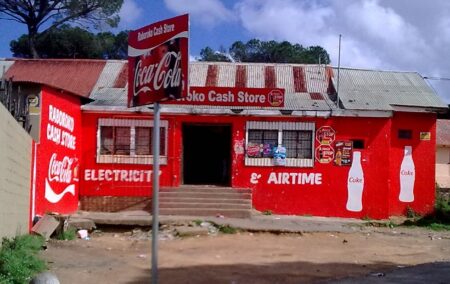South African entrepreneurs often complain about the lack of funding available to grow their businesses.
One might assume that this is because poor people have no income to invest. While this is true to an extent, the bigger problem is that it is much easier for the poor to consume than to invest due to the effects of government regulation. South Africa’s pro-poor rhetoric doesn’t match reality when it comes to financial services.
Consider this; in late 2019, the Competition Commission published a retail market enquiry that noted that many township spaza shops had closed due to competition from the likes of Pick n Pay and Shoprite, and from immigrant shop owners. This is entirely the wrong way to look at things – what is really happening is that township consumers are getting cheaper goods because more people are competing for their money. That is a good thing for the township economy, as it means more money is available for personal savings and investment.
So why is this increase in disposable income not being reflected in increased savings, and therefore a reduced cost of capital? The reason, as I see it, is simple: Even with more disposable income, it is still cheaper and easier to consume than it is to save. South Africa has many great financial services companies, almost none of which were founded in a township.
This should be concerning for a government supposedly presiding over the most advanced financial economy on the continent. The best way to cater to the needs of poor people is to allow businesses, started in the relevant communities, to cater to those people’s needs. The existing South African financial services industry has evolved to serve the needs, largely, of South Africa’s big corporations.
This is true across the industry, whether we are talking about banking, insurance, securities markets for company shares, and debt (bonds). While the current industry was born in the context of lighter regulation, the current government has ramped up these regulations considerably since taking power in 1994. We are faced with a situation in which it is impossible for anyone but a millionaire to start the simplest financial services company.
Acts such as the Banking Act, Companies Act, Financial Markets Act, Financial Sector Regulation Act, National Credit Act and so on only serve to impose artificial costs on any entrepreneur, especially the poor entrepreneur living in a township who, in addition, has various infrastructure challenges. If these regulations were done away with, it would be possible, for instance, for an entrepreneur to start his or her own online stock exchange. The government would need only to register any changes in ownership that arose from such a market.
Instead, any poor businessperson wishing to raise funds in equity or debt markets first has to comply with the listing requirements imposed by the government and the exchanges themselves. The exchanges should set their own requirements, and that is the right every potential owner of a securities exchange should have. As an indicator of what such a budding entrepreneur might face, consider that a potential exchange owner has to part with R450 000 just for the market infrastructure licence application, with no guarantee that the application will succeed.
How many people in South Africa’s townships can afford this princely sum?
Banking is similarly difficult for the young entrepreneur to break into. The regulations seem to have been written with the assumption that every bank must of necessity be a multi-million rand business. This is not true; stokvels and mashonisas (loan sharks) are currently providing bank services, albeit illegally, to the underserved market of poor, rural and township residents.
It is important for the government to realise that it cannot create an entrepreneur-friendly environment without getting out of the way of entrepreneurs. Indeed, entrepreneurs are already meeting some of the financial services needs of their communities. The problem with informal markets is that there’s a limit to how much you can grow your business without attracting the ire of regulators and the taxman.
As regards equity markets, there are significant costs involved in investing in an established market like the Johannesburg Stock Exchange (JSE).because of the regulations that the exchanges and listed companies have to comply with, There is no reason why riskier but cheaper markets cannot arise in South Africa’s townships. The people living in these places are already spending billions every year on consumer goods. Wouldn’t it make more sense if they had the option to invest some of those billions of rands in their local businesses?
In fact, it is quite ridiculous that I can buy whatever food I want, whatever clothes I want, in an increasing number of townships, but if, on the other hand, I want to buy shares in local businesses, I have to spend time and money tracking them down, finding out if they are well run, trying to convince the other person to sell, and finally going through the long process of hiring lawyers.
Deregulating financial markets, especially in the poorest areas in the country, will go a long way towards reducing these barriers. No one needs free markets as much as the poor person does. The degree to which markets are free is also the extent to which you can act in getting yourself out of poverty. This point is often missed by politicians.
If you like what you have just read, become a Friend of the IRR if you aren’t already one by SMSing your name to 32823 or clicking here. Each SMS costs R1. Terms & Conditions Apply.
[Picture: HelenOnline, https://commons.wikimedia.org/w/index.php?curid=28026889]

